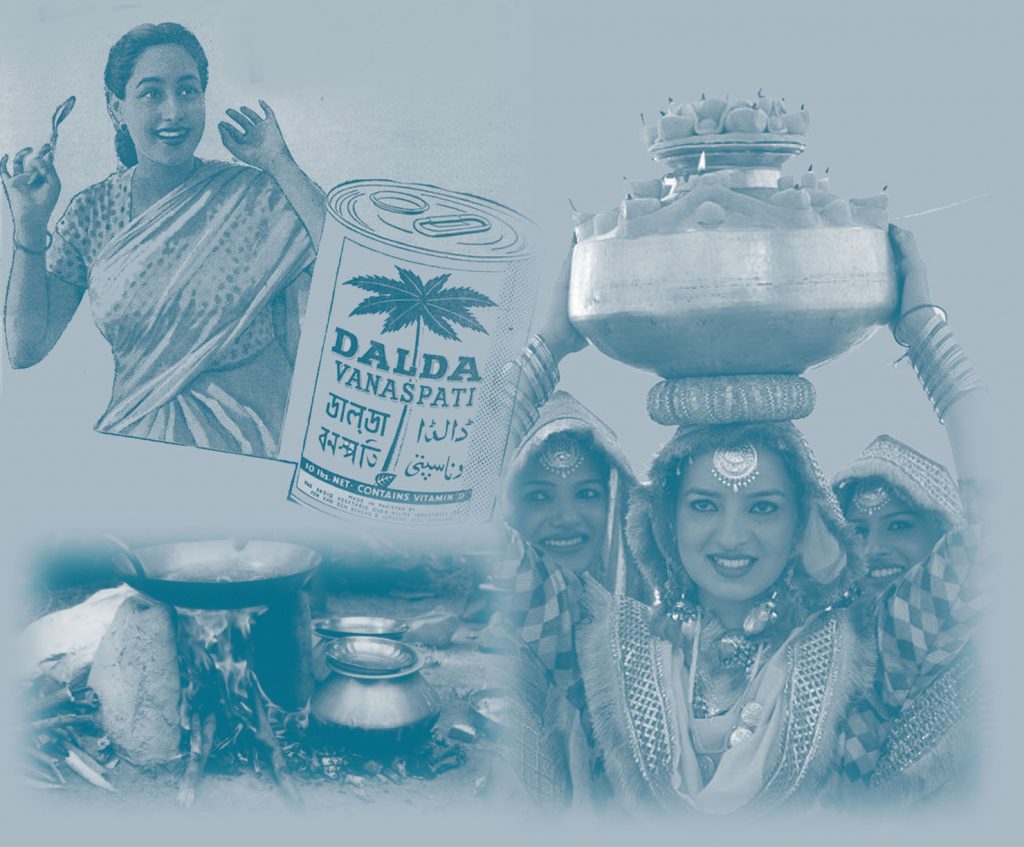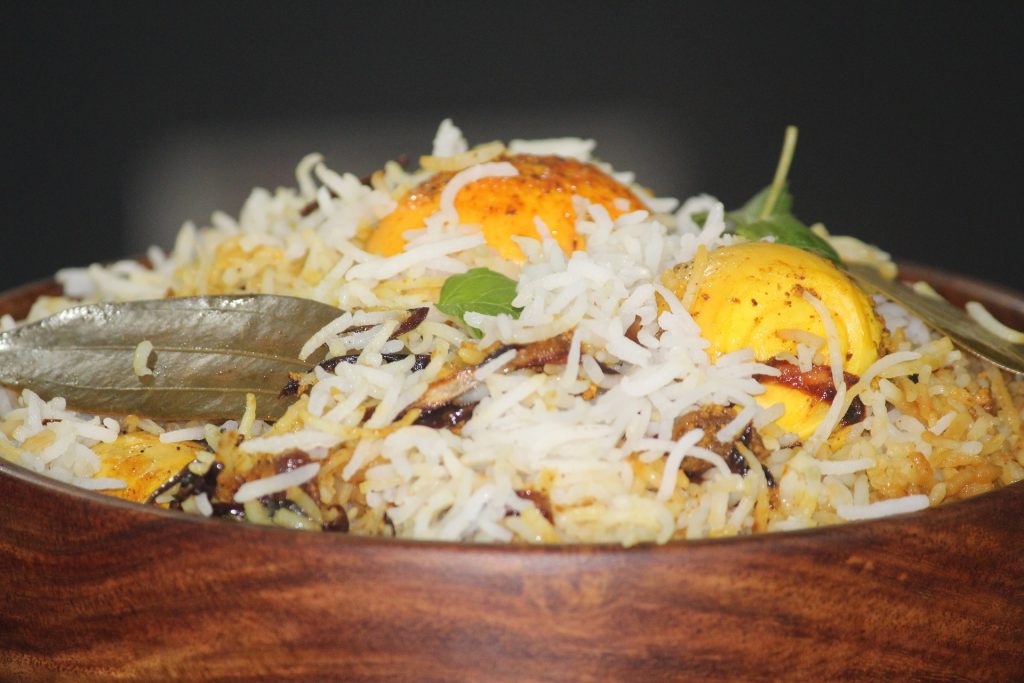Dalda, Vanaspati, Banaspati ; Everyone has heard these names. But ever you thought where did these names come from and what do they mean? Let us explain it for you)
People living in the subcontinent, Pakistan, India, Bangladesh, Sri Lanka, Nepal, Bhutan, etc., have been stuck in a cycle of subsistence since time immemorial. Religious and political leadership has confused them with nonsense debates, this is why they can’t pay attention to anything beyond that. They are just supposed to earn their livelihood, attend political and religious gatherings. They were never led to focus on acquiring knowledge.
It is said that education has become common. Schools, colleges and universities are established everywhere. This is somewhat true. But this produced a crowd of degree holders who do not have knowledge. The reason is that our educational institutions are awarding degrees not knowledge. When I meet people with two or three degrees, I am surprised to hear them talk. Believe me, today’s degree holder certainly knows something about his subject, but if you talk about it apart, you don’t see anything.
People up to our time used to focus on acquiring knowledge as well as degrees, but now not only students but parents themselves send their children to school in the hope and expectation that will earn well to support the family.
The root cause of all this tragedy or misfortune is the selfishness and wrong policies of our rulers as a result of which the system of high and low came into existence, rich is getting richer but the common man strives for survival. His time is spent to fought for living and earning money, in these situations how one could be able to focus on acquiring knowledge.
All that is meant by this discussion is that we are living in the Third World, living unconsciously like the bull of the crusher. What is being eaten, what is being drunk, no knowledge, the purpose is only to put out the fire in the stomach and maintain the continuity of life. So, in this context, if someone is asked what Dalda is, the answer will be, the ghee (oil) that cooks pratha. And for basmati, the answer would be, rice for biryani.
Once a hungry man was going somewhere in the moonlit night. On the way, someone pointed to the moon and said, look how beautiful the moon looks. The hungry man replied, “Yes, it is as white and round as cornbread.” Did you notice how hunger and poverty changes the scale of thinking, and the moon look like cornbread.
As mentioned above, if someone asked what Dalda is, the person will start thinking pratha and if you mention the name of basmati, the pot of biryani will start spinning in front of his eyes. The truth is that, nowadays, no one is interested in knowing the origins of Dalda, Vanaspati and Banaspati. The only goal of the common man is eating pratha, mutton and biryani. But there are some people in the society who do not have the time for such a long and wide research, but if someone else finds something for them and brings some scientific research thing, then they are definitely happy to read and know. Today’s topic has been chosen with such people in mind. Let us now move on to the names mentioned above, their meanings and background so as to increase your knowledge.
Before proceeding, please keep in mind that Dalda Ghee is not ghee but oil obtained from plants or hence it is called cooking oil. Ghee is the only fat that is extracted from the milk of lactating animals. In fact, before the discovery or arrival of vegetable oil, people in the subcontinent and even in most parts of the world used milk-derived ghee and were familiar with the same name. When the traders of cooking oil came to the market with vegetable oil, they started selling it as ghee so that consumers or users would buy it as ghee. While it is not ghee, it is oil.

Origin of Dalda:
Let’s say the Europeans named oil as ghee, but where did the name Dalda come from? I searched dozens of dictionaries to find out, but I couldn’t find the word. I thought it would be the name of a person, place, herb or chemical that was given to this product and if it was, it would be found somewhere in a dictionary but not found anywhere. Eventually the idea came to mind that the arrival of cooking oil in India and its history should be read and examine so that perhaps the reason for this could be ascertained.
My guess was right and the effort was successful and eventually Dalda’s entire family, parents and namesake were caught. Since it is a fictitious or coined name, it is not found in any language dictionary. In the early days, desi ghee was used in the Indian subcontinent but due to poverty in the society ordinary people could not buy it so they used mustard oil as an alternative. In such a situation, the attention of Western traders was drawn to the need for cheap alternatives to ghee in the region. So, around 1930, a Dutch trader Dada & Co. started importing edible oil made from flowers and plants to India and gradually took over the market.
Since India was under British rule at that time, the British heard that Dutch traders were coming to our colony to make money from the edible oil trade. Therefore, they promoted India Vanaspati Manufacturing Company (a subsidiary of Lever Brothers, a large British trading company) to share in the profits.
So, the Lever Brothers told Dada & Co. that you give us crude oil and we will process it in India and take it to market. It is important to know after the oil is extracted from plants, it is made edible by undergoing a chemical process called hydrogenation.
In 1937, Dada & Co. of the Netherlands assigned its rights to a subsidiary of Lever Brothers, but at the same time stipulated that the brand name would be ours, that is, Dada would be written on the packaging and sold. This condition was not acceptable to the Lever Brothers, so the issue was discussed for some time. When both sides could not make a decision, a third party intervened and suggested that by adding the first letter L of the Lever Brothers name between Dada, both Dada and Lever should be represented by this name. This is where the word Dalda came from. Thus, Dalda’s father’s name was Dada who belonged to the Netherlands, mother’s name was Indian Vanaspati / Lever Brothers, place of birth Bombay and year of birth 1937 (British Rule).
Vanaspati/Banaspati
After the story of Mr. Dalda, let us know what Vanaspati and Banaspati are. Since it is obtained by extracting edible oils, fruits, flowers, plants, seeds and other plants, it belongs to the plant family. The source of Banaspati in Sanskrit and Hindi is ‘Banaspat’, which literally means vegetable, plant, tree, leaf, king of the forest, plant or tree etc. For this reason, it is called Vanaspati or Banaspati.
After Dalda and Vanaspati or Banaspati, let me tell you about a type of Basmati rice. Coincidentally, the name was also taken from the Hindi language. ‘Baas’ or ‘Basna’ means perfume in Hindi and Mati has a meaning of “Queen”, in this sense it means queen of perfume.
As a variety of rice grown in Punjab is very fragrant, it was named Basmati.
Are you a writer ?Send us your writings, we encourage new writers. |
